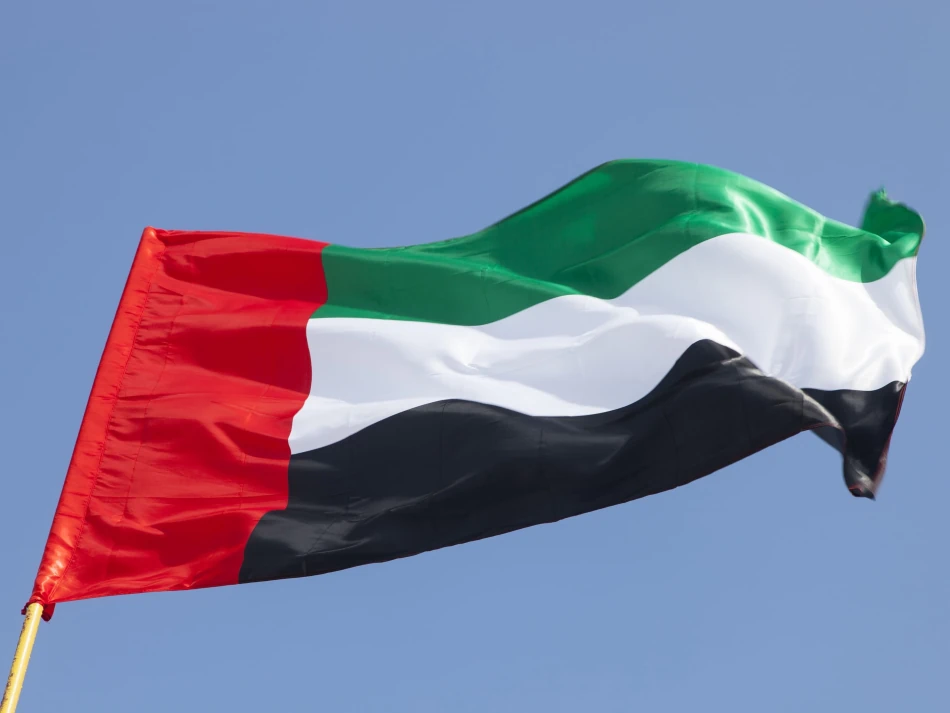
UAE Condemns Israeli Settlement Expansion and Military Escalation in Gaza
UAE Breaks Diplomatic Silence with Sharp Condemnation of Israeli Settlement Expansion
The United Arab Emirates has issued one of its strongest diplomatic rebukes of Israeli policy since normalizing relations in 2020, condemning new settlement plans in the occupied West Bank and ongoing military operations in Gaza. The statement signals growing regional frustration with Israel's actions and highlights the delicate balance Gulf states must maintain between strategic partnerships and Arab solidarity.
A Calculated Diplomatic Shift
The UAE's Ministry of Foreign Affairs described Israel's settlement activities as "grave violations of international law" that undermine regional and international peace efforts. This marks a notable departure from the more measured tone the Emirates has typically adopted since signing the Abraham Accords four years ago.
The timing of this statement is particularly significant, coming as Israel faces mounting international pressure over its conduct in both Gaza and the West Bank. For the UAE, which has positioned itself as a regional diplomatic hub, remaining silent was likely becoming increasingly untenable domestically and across the Arab world.
The Abraham Accords Under Strain
Balancing Act for Gulf States
The UAE's condemnation reflects the complex position facing Abraham Accords signatories. While economic and security cooperation with Israel has yielded tangible benefits—from trade partnerships to intelligence sharing—public opinion in the Gulf remains deeply sympathetic to Palestinian causes.
Unlike previous diplomatic protests that focused solely on humanitarian concerns, the UAE's statement explicitly warned of "catastrophic consequences" for regional security and stability. This language suggests Emirati officials view current Israeli policies as potentially destabilizing to their own strategic interests.
Economic Implications
The diplomatic tension could impact the roughly $2.5 billion in bilateral trade that has developed between the UAE and Israel since 2020. However, the UAE's statement stops short of threatening economic consequences, suggesting Dubai and Abu Dhabi remain committed to the underlying framework of normalization while expressing policy disagreements.
Regional Dynamics at Play
The UAE's position aligns it more closely with traditional Arab League stances, potentially smoothing relations with countries like Saudi Arabia that have maintained more cautious approaches to Israeli normalization. This diplomatic recalibration may also reflect changing regional power dynamics as Gulf states navigate relationships with both Israel and Iran.
The Emirates' call for the international community to "assume its responsibilities" in stopping what it terms violations represents a direct appeal to the United States and European powers. This places additional pressure on Western allies who have supported both Israeli security and the Abraham Accords process.
Looking Ahead: Diplomatic Consequences
The UAE's statement likely represents a new baseline for Gulf state positions on Israeli policy rather than a temporary diplomatic protest. As settlement expansion continues and military operations persist, maintaining the delicate balance between normalization benefits and regional credibility will become increasingly challenging for Abraham Accords signatories.
For Israel, losing the diplomatic cover that Gulf normalization provided on settlement issues could complicate efforts to expand the Abraham Accords to include Saudi Arabia and other potential partners. The UAE's willingness to publicly criticize Israeli policy may embolden other regional actors to take stronger positions, potentially reshaping Middle Eastern diplomatic alignments in ways that extend far beyond the immediate Israeli-Palestinian context.
Most Viewed News

 Sara Khaled
Sara Khaled






